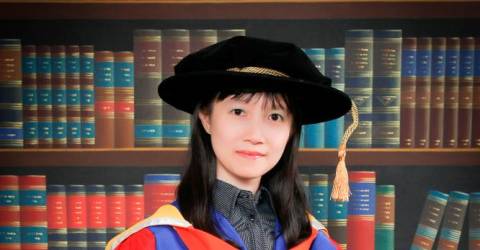NEWS
Malaysia's Dr Rebecca Wong Shin Yee Named Top 2% Scientist In The World By Stanford University
Yet another Malaysian has made the country proud with her achievement.
Dr Rebecca Wong Shin Yee was listed as one of the World’s Top 2% Scientists by Stanford University in a list that was published in Oct 2020.
The Associate Professor of Physiology and Head of Preclinical Sciences at SEGi University’s Faculty of Medicine made it to the list as her work is some of the most cited in the world.  According to a press release by SEGi University, Dr Wong is a trained and registered medical practitioner.
According to a press release by SEGi University, Dr Wong is a trained and registered medical practitioner.
Doing important work
 According to a press release by SEGi University, Dr Wong is a trained and registered medical practitioner.
According to a press release by SEGi University, Dr Wong is a trained and registered medical practitioner. Her interests in leukaemia, stem cell and medical education research have yielded more than 30 publications in high-impact international journals, and her works have been cited more than 2000 times by researchers worldwide.
She has also published five academic books in the field of physiology.
"Being listed as one of the World’s Top 2 per cent Scientists by Stanford University is a great honour. I view this as a motivational force to continue pursuing my research and do my best at being at the forefront of the advancing healthcare", said Dr Wong.
The statement also said that Dr Wong is frequently invited to be a peer reviewer by many high-impact international journals such as PLoS ONE, Cell Biochemistry and Function, Journal of International Nanomedicine, Journal of Cell Science and Therapy and the Journal of Stem Cell Research, to name a few.
 Additionally, Dr Wong was also invited to be one of the judges for the 11th Malaysian e-Symposium of Biomedical Science and a peer reviewer for the International Conference on Digital Learning and Technology 2021.
Additionally, Dr Wong was also invited to be one of the judges for the 11th Malaysian e-Symposium of Biomedical Science and a peer reviewer for the International Conference on Digital Learning and Technology 2021.She was also awarded the ‘Malaysia Most Impactful Young Educator’ Award in 2019.
Her other recognitions include being named as one of the Ten Outstanding Young Malaysians Awards 2018 by Junior Chamber International; named Outstanding Young Scientist/Student Award 2011 at the Asian Congress of Biotechnology 2011, Shanghai, China; winning 1st prize for the Young Investigator Award at the Diabetes Asia 2010 Conference by National Diabetes Institute Malaysia; and receiving the Elsevier Journal Best Paper Award (Biotechnology Advances) in 2011.
How impressive!
Congratulations, Dr Wong!
Must-Watch Video


